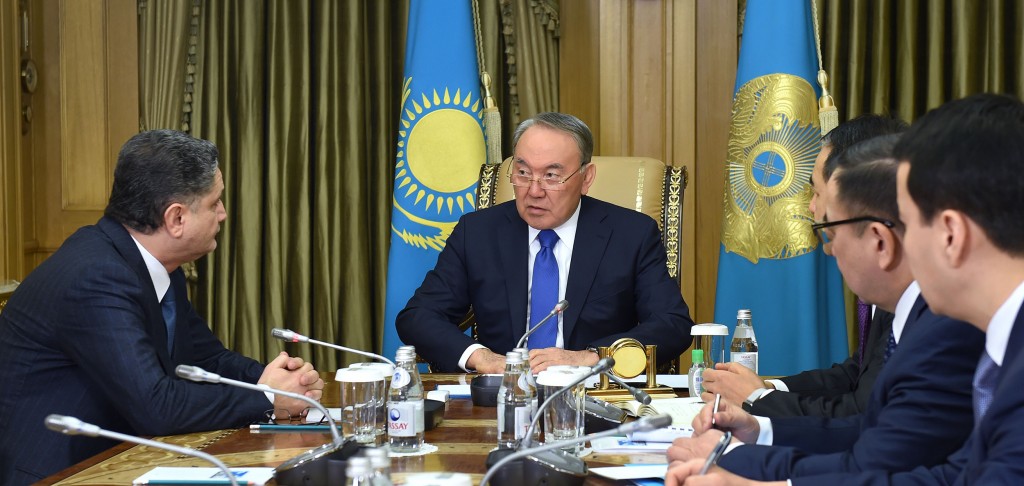ASTANA – Kazakh President Nursultan Nazarbayev and Chairman of the Board of the Eurasian Economic Commission (EEC) Tigran Sargsyan discussed the Eurasian Economic Union (EAEU) development strategy in the framework of the global crisis, deepening of EAEU economic relations with outside countries and the main directions of current EEC activities Feb. 25, the press service of Akorda reported.

Kazakh President Nursultan Nazarbayev (C) met Chairman of the Board of the Eurasian Economic Commission Tigran Sargsyan in Akorda on Feb. 25.
Nazarbayev stressed that Sargsyan holds the EEC chairmanship in a difficult period of the world economy, which makes it harder to find new points for further growth.
“However, all of these problems are not related to the work of the EAEU. There is no doubt about the usefulness of our integration. Especially today, when many countries express their desire to join the EAEU or create a common free trade area with it. The crisis is a temporary phenomenon, whereas the general capacity of our economies and the market volumes remain,” he said.
In addition, Nazarbayev noted that membership in the Union implies not only the usage of possibilities, but also requests contribution to its development.
Sargsyan stressed that Nazarbayev’s position on the overall development strategy of the EAEU is of fundamental importance, because his initiatives formed the basis of the established common Eurasian space.
Sargsyan expressed confidence that in the year of Kazakhstan’s chairmanship in the organisation, the integration processes will be given a new impetus for development.
He also said the EEC was instructed to carefully study Nazarbayev’s appeal to the EAEU heads of state to implement its basic components.
The EAEU is an international organisation for regional economic integration. It has and international legal personality and is established by the Treaty on the Eurasian Economic Union, signed in Astana May 29, 2014.
The EAEU provides for the free movement of goods, services, capital and labour, pursues coordinated, harmonised and single policy in the sectors determined by the treaty and international agreements within the Union, the organisation’s website says.
The EEC is the permanent regulatory body of the EAEU, which started operating Feb. 2, 2012. The main purpose of the EEC is ensuring the functioning and development of the EAEU, as well as developing proposals for the further development of integration.

